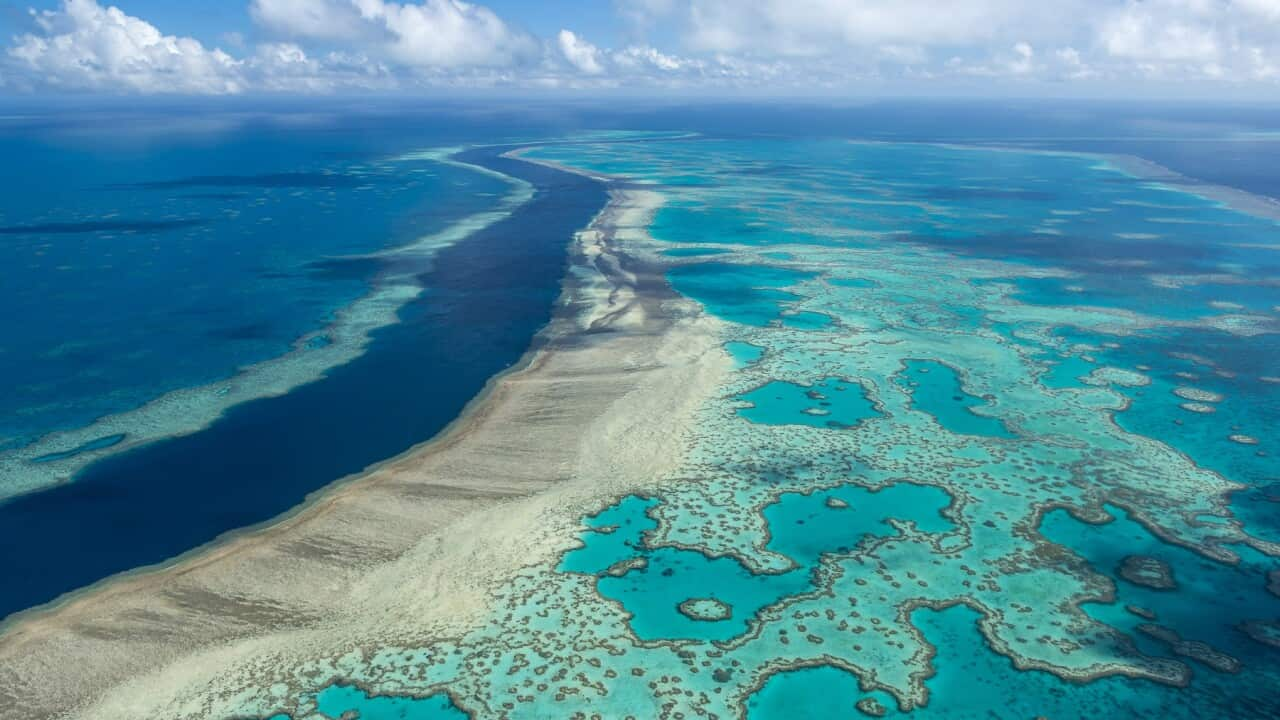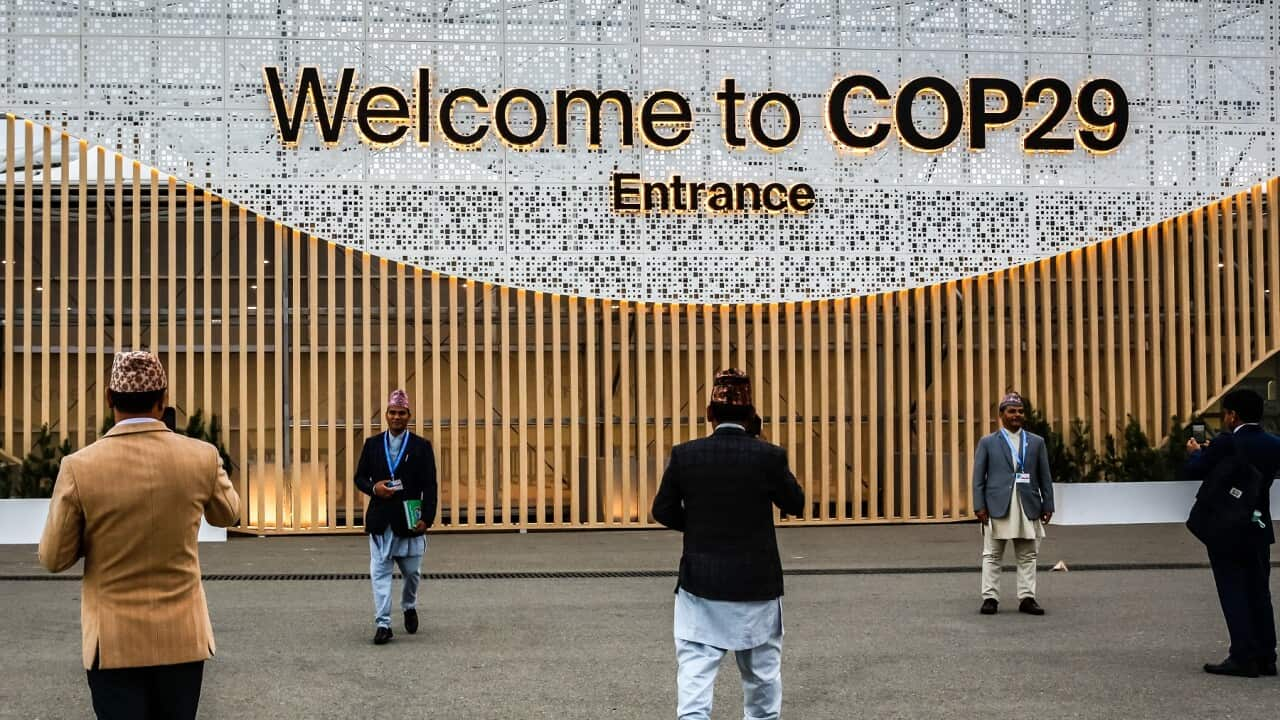TRANSCRIPT
Prime Minister Anthony Albanese has joined world leaders at the Asia-Pacific Economic Cooperation leaders' summit in San Francisco.
Leaders of the United States, China, Canada, Japan and Indonesia are all at the summit.
The first session marks the first major meeting of all the leaders together in an APEC meeting this year.
The meeting is dedicated to climate change, sustainability and a transition to clean energies.
Host United States President Joe Biden says it is important the climate crisis is addressed urgently.
"Every economy around this table faces this challenge, every one of us. And as I've said before, is the only existential threat to humanity. We either get this right or there's not going to be a whole lot of people around to talk about it. Every economy is seeing signs of what's to come if we don't act: droughts, floods, seas rising, temperatures rising, and more and more unpredictable weather patterns."
He says leaders in the Indo-Pacific region have a particular responsibility to the rest of the world to reduce emissions.
"As a region, we're responsible for the largest share, the region we're talking about here around this circular table, we're responsible for the largest share of global emissions. So we must also bear responsibility for the solutions, while we still have time to change course."
Meanwhile, smaller meetings have taken place on the sidelines of the conference.
Anthony Albanese says APEC presents an opportunity to discuss Australia’s shared objectives with countries around the world.
"It was an opportunity to talk about Australia’s vision for becoming a renewable energy superpower for our region, to talk about the opportunity we have to work with countries like Indonesia and Singapore to our north, in exporting clean energy but also the role we can play because of the abundance of critical minerals and rare earths that we can play in supply chain issues as we go forward."
Mr Albanese has met his Canadian counterpart, Justin Trudeau, Chinese President Xi Jinping, U-S President Biden, Thai Prime Minister Srettha Thavisin and some Pacific Island leaders.
"There was a commonality in the contributions from APEC leaders about the need to tackle climate change and the need to work together, and the opportunities that the transition to clean energy economies presents. There is also a recognition that developing countries need support and industrialised countries have a responsibility to do what we can. "
Bushfire risks were on the agenda in the meeting with Justin Trudeau, following a horror season of wildfires in Canada.
"We are very worried about our upcoming summer. We have all the conditions that were there prior to 2019/20. And indeed, the fact that that period has gone means you've got the growth, and just about the right size, elements conditions, to really be concerned with. We've got a very dry hot period coming up for us. "
Meanwhile, thousands of students have taken to the streets to protest against the federal government's approval of nine fossil fuel projects in a year and $9 billion paid in subsidies to the industry.
These students expressed their dissatisfaction with the Albanese government, accusing it of failing its promise of climate leadership.
"Climate change is really bad, and it needs to be fixed. "
"Climate change is like impending doom, but we can definitely stop it, but it's just when we stop it as a matter. "
"Well, we're here because the Labor government's inadequacy in tackling the climate crisis by approving new coal and gas in Australia. "
"I had exams today that I've actually decided to miss because I think this is such an important cause and we are the people who are going to take on this fight."
Mr Albanese also joined with the leaders of the Indo-Pacific Economic Framework to discuss supply chain resilience, and the clean energy economy.
The US-led framework brings together 14 countries including Australia, but excluding China.
The group hoped for a trade agreement, but none has been reached so far.
Prime Minister Anthony Albanese says while this may be disappointing, he believes progress has been made on the issue.
"There is positive steps forward. One of them is ready to go for signing. Two of them, the wording has been essentially agreed upon and trade, there's ongoing negotiations. We know that trade agreements are difficult. And we know that from the experience we're having in trying to finalise a trade agreement with Europe. So I think it was a very positive outcome. "
Mr Albanese also praised the signing of a supply chain agreement as well as the significant conclusion of negotiations concerning clean energy cooperation.
A leaders' retreat is scheduled for the final day.













